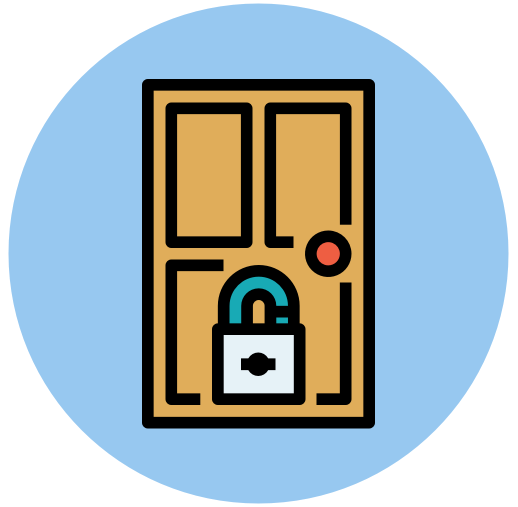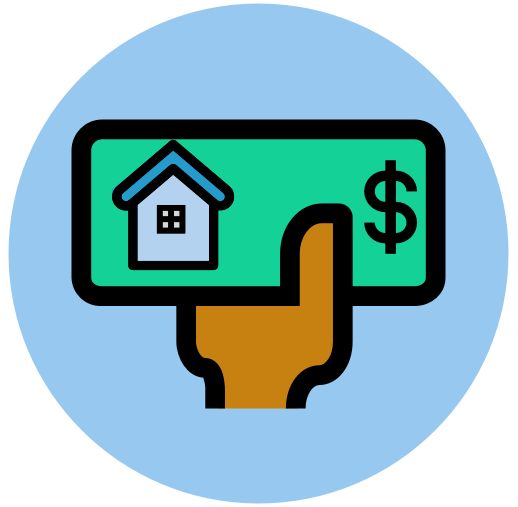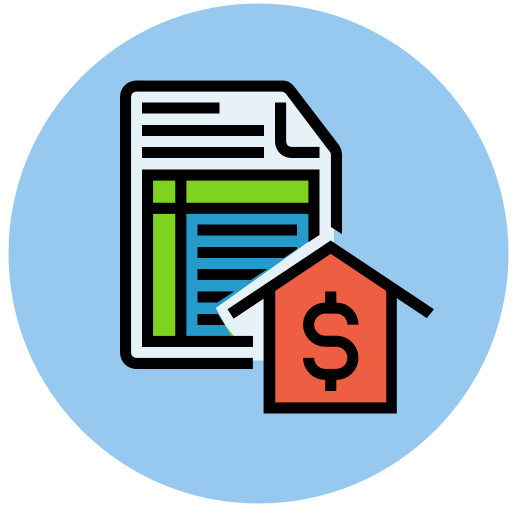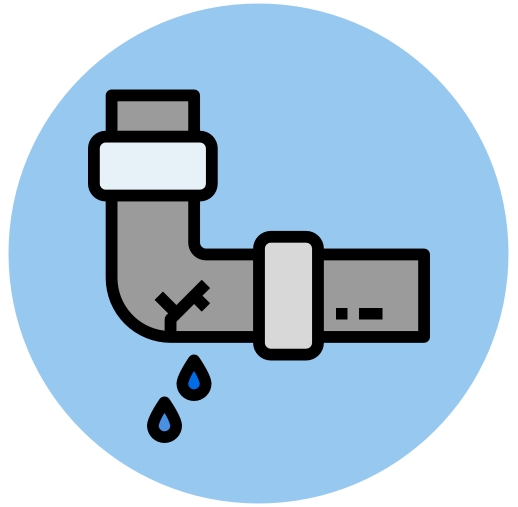Eviction Help Guide
For tenants facing eviction in VirginiaUse this eviction guide to protect yourself and your home.
Tenants in Virginia have the legal right to live in your rental home, unless your landlord has followed the legal process for eviction and gotten an official order to evict you.
If a landlord tries to make you leave your home without an official court order, it is illegal. You have the right to remain in your rental home until the landlord gets a legal order to evict you.
This guide explains how the eviction process works in Virginia, what rights tenants have, and how they can protect themselves and their family.
Reach out for help as soon as possible
If you are a Virginia tenant at risk of eviction, call the Eviction Legal Help Helpline at 1-833-NOEVICT (1-833-663-8428). This is a statewide toll-free number to get you to legal help to deal with the eviction.
Lawyers can help you understand your options and next steps for your specific situation. Legal aid lawyers provide free help to people who qualify.
Frequently Asked Questions
Find answers to common questions that Virginia renters have about an eviction.
A Step-by-Step guide to evictions in Virginia
Get a quick overview of how evictions work. If your landlord is trying to evict you for nonpayment of rent, understand your rights and options.
The Eviction Process in Virginia
Understand how evictions work in the different phases of the official eviction process: warning notices, then court hearings, and dealing with a judgment from the court.
Prevent an Eviction before it starts
Find options to solve problems with your landlord, to stop them from filing an eviction against you
Before an Eviction
How can I prevent an eviction from happening?
If you haven't yet been sued by your landlord, then you have options to prevent an eviction lawsuit.
This includes if you have just received a warning notice, but haven't been given a court date yet.
1. Know Your Rights as a Renter
The landlord cannot evict you without a court judgment.
The landlord can't just threaten you to leave. This is called a ‘self-help eviction’ and it is illegal in Virginia.
You can read more about Virginia landlord-tenant law at this PDF. Also, make sure you know the 7 new laws (as of 2020) that protect tenants in Virginia.
2. Make Sure You Get Proper Legal Notices from your Landlord
If the landlord wants to evict you, they must give you a 14-day notice about a possible lawsuit.
Once these 14 days have passed, then they can file a lawsuit. If the court decides for them, then the court may issue an eviction judgment.
During the COVID-19 pandemic, your landlord is also required to give you information about rental assistance.
3. Get Rental Assistance
You can file for rental assistance before the landlord has given any notice or lawsuit.
The rental assistance can help you make up rent or fees you owe. This may stop the landlord from filing an eviction lawsuit against you.
You can find help with Virginia rental assistance here at the Virginia Rent Relief Program, https://www.dhcd.virginia.gov/rmrp. This is especially if you have rent problems because of COVID-19.
Phase 1: Notice of a Possible Eviction
In this first phase of an eviction, the landlord gives the tenant an official Notice.
The Notice is a legal document that warns the tenant that unless they take a certain action (like paying rent), the landlord is planning on filing an eviction lawsuit against them in court.
During this phase, a tenant can take action to stop the eviction from happening. Read more about ways to stop the eviction here.
What type of notice does a landlord have to give to evict?
No matter what the reason, a landlord must give you a written notice in order to evict.
However, you do not have to move just because a landlord has given written notice. The landlord must still follow a legal process, and you have the opportunity to defend against it.
What type of notice does a landlord have to give in a non-payment of rent case?
If a landlord wants to evict you for not paying rent, the landlord must give you a written notice to either move or pay rent in 5 days. If you pay the rent in 5 days, you get to stay. If you do not pay, the landlord can start an unlawful detainer action (an eviction) in General District Court (GDC).
What type of notice does a landlord have to give in other cases?
If the landlord wants to terminate a month-to-month lease for a reason other than non-payment of rent, the landlord must give you a written notice to move out in 30 days if the rent is paid each month. If it’s paid by the week, then only a 7-day written notice is required.
If your rental is covered by the VRLTA:
- If the landlord wants to evict you for failure to follow the lease (other than non-payment of rent), or if you have committed a violation that affects health and safety, and if it’s a problem that you can correct, then the landlord must give you written notice to correct the problem within 21 days.
- The notice can say that if you don’t correct it within 21 days, then the lease will terminate in 30 days after the date of the written notice.
If it’s a problem that can’t be fixed, then the landlord can give you a written notice that the lease will terminate in 30 days.
Phase 2: An eviction lawsuit in court
The landlord can go to the court to file a lawsuit after the 14-day notice period after they have given you a notice warning of an eviction.
This eviction lawsuit is called an unlawful detainer action. If they win the lawsuit, the court will give them a legal order that they can use to force you to leave the home.
What are the steps in an eviction (unlawful detainer) action?
A landlord must follow these steps in an unlawful detainer action.
- File a lawsuit in court. Almost all evictions are filed in General District Court.
- Serve (legally deliver) you a copy of the court papers.
- Go to court at the date and time of your hearing.
- Get a judgment of possession from the court. The landlord may also get a judgment for unpaid rent and other charges at the same time
- Get a Writ of Possession from the court. This is the paper that allows the Sheriff to evict you.
What should I do at an eviction (unlawful detainer) hearing?
When your case is called, you may tell the judge that you are disputing the claim, and that you want a trial date.
If you are paying the rent and have the full amounts that are owed, including court costs, late fees and reasonable attorney’s fees, you can make your payment to the landlord then, and the case will be dismissed.
If you dispute the claim, the judge will give you another date when you must come back to court for a trial. Also, if you can’t tell from the court papers how the money being sought is calculated, or if you need further information to help you with your defense, you should tell the judge that you want the landlord to file a “Bill of Particulars.”
The landlord can also ask the judge to make you file something called an “Answer and Grounds of Defense”, more commonly known as an “Answer.”
This is a statement that you will have to file with the court that explains to the court why you don’t think you owe the money.
On the trial date, be sure to bring any papers or receipts that relate to the claim, and any witnesses that you want to testify in your case.
What defenses could I have to the eviction?
Under Virginia law, you may have defenses. One defense is that the landlord did not keep the place in good shape. To use this defense, you must be current in rent and you must inform the landlord in writing about the problem. You also must pay rent to court instead of the landlord.
Another defense is that the landlord wants to evict you because you complained or used legal rights.
Phase 3: After the Court's Judgment
After the court hearing happens, the judge will issue an order.
If they decide with the landlord, this judgment will begin the process of you being forcibly removed from your home.
What if you lose the eviction lawsuit?
If you showed up in court on time and the landlord is granted a judgment for possession, nothing can be done until a 10-day appeal period runs.
- Chance to Appeal for 10 days: If a money judgment is granted, appealing an eviction requires posting an appeal bond. If the case is not about the nonpayment of rent, the bond can be waived, if you are not able to afford it.
- Landlord gives the court order to Sheriff: Once the 10-day appeal period has run, the landlord can request that the Sheriff issue a writ of possession to enforce the Court order. The Sheriff has up to 30 days to enforce the Court’s order.
- Sheriff posts warning on Home: The Sheriff posts the writ on the tenant’s door along with a notice advising the tenant that he or she has 72 hours from the posting of the notice to vacate the premises.
- After 72 hours, tenant is set out: If you haven't removed out of the home yet, then after 72 hours you can be set out. On the date for actual eviction on the Sheriff's warning, all of your possessions can be put by the side of the nearest public street.
What if I make payments to the landlord after the landlord gets an Order of Possession from the court?
Simply making payments to the landlord after the judgment or Order of Possession will not stop the eviction process.
The landlord can take the tenant's money and still proceed with eviction (for up to one year after the judgment). There are only two ways to stop this:
- If your landlord takes full payment of all rent and other amounts owed after the judgment of possession, your landlord must give you a written notice within five (5) business days accepting your money with reservation. If your landlord does not do this, it may be possible to stop the eviction.
- If you and your landlord enter into a new rental agreement after the judgment of possession.

Video Guide to Evictions
For renters in VirginiaWhat should you do if you are threatened with eviction?
Your landlord must take a number of steps before evicting you.
This video discusses the necessary steps a landlord must take before evicting a tenant as well as the options you have if your landlord threatens to evict you.
FAQs about Evictions
For renters in VirginiaWhat is the law on evictions in Virginia?
What is the official law that says what is allowed? And what renter rights people in Virginia have?
Eviction in Virginia depends on whether your rental housing is covered by the Virginia Residential Landlord Tenant Act (VRLTA).
Generally speaking, the VRLTA applies to:
- apartment complexes,
- single-family residences, if the landlord rents out more than two of them in Virginia; and
- hotels, motels, or boarding houses if the tenant is renting for more than 90 days.
If your rental is not covered by the VRLTA, there may be other state laws that apply.
What rights do I have if my landlord changes?
I had a one-year lease with my landlord. Now, they have sold the property and the new owner says I have to leave. What are my rights?
You have the same rights with the new owner that you had with your previous one.
In cases where the owner of a property sells it, the tenant has the same rights against the new owner as they had against the original owner.
Can anyone help me pay the rent that I'm behind on?
If I am not able to make rent this month, can any group help me?
You can seek out rental assistance from the Virginia Rent Relief Program: https://www.dhcd.virginia.gov/rmrp.
This program is especially for renters who have suffered COVID-19 hardships.
In Fairfax, Virginia, the Office of Coordinated Services Planning at (703) 222-0880 may be able to help arrange assistance for you to pay any overdue unpaid rent.
Get More Help
with your legal situation
Find a Private Lawyer: To connect with a private lawyer, call Virginia Lawyer Referral Service at 1-800-552-7977 or go to their website at https://vlrs.community.lawyer/. Some lawyers charge $35.00 for an initial interview.
Contact Legal Aid: You can call the Virginia Legal Aid Hotline 1-866-LEGLAID (1-866-534-5243). This will help you find your local free legal aid group.
If you are in Northern Virginia, seek help from the legal aid group Legal Services of Northern Virginia, visit https://www.lsnv.org or call (703) 778-6800.
If you are not in Northern Virginia, or need to find other groups, you can find a list of Virginia legal aid and help groups here, for more legal and financial assistance.
Look at these resources on evictions in Virginia:
Other housing legal problem guides
Do you need help with housing problems in Virginia? These free legal help guides can help with problems when you are a renter or a homeowner.

Lockouts from Rental
Have you been locked out of your rental home in Virginia?
Follow this guide to get back into your home legally.

Security Deposit
Are you a renter in Virginia who is trying to get their security deposit returned from a landlord? Use this guide.

Foreclosure from Home
Are you a homeowner in Virginia who is faced with possibly losing your house to foreclosure?

Living Conditions & Repairs
Are you a renter in Virginia who has problems with your home?
Do you have mold, pests, broken appliances, or utility issues?
Find out your rights to get your home repaired by your landlord.












